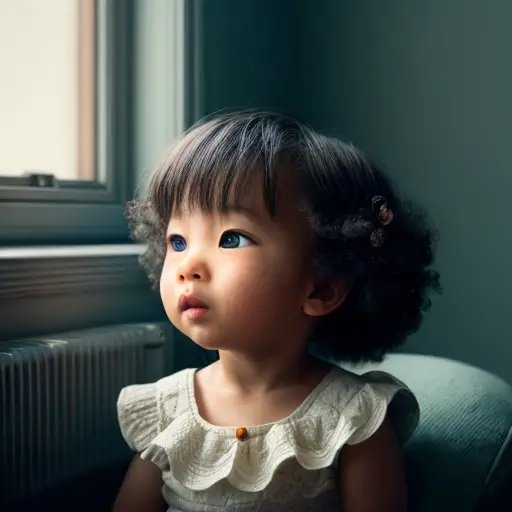Physical Milestones: Nurturing Your Child's Growth
As parents, we eagerly await those physical milestones that mark our child's growth, like a toddler's first wobbly steps or the triumphant moment they finally conquer the monkey bars. These milestones are not only adorable but also crucial for their development. From fine motor skills like learning to hold a spoon or scribble with a crayon, to gross motor skills like running, jumping, and climbing, each achievement is a testament to their growing independence. So, let's cheer on our little ones as they navigate the world, one wobbly step at a time, because who knows, maybe they'll be the next Olympic gymnast or the world's fastest sprinter!
Cognitive Development: Unleashing Your Child's Potential
One interesting fact about the types of child development is that it can be categorized into four main areas: physical, cognitive, social, and emotional development. Physical development refers to the growth and maturation of a child's body, including motor skills and physical abilities. Cognitive development focuses on a child's intellectual abilities, such as thinking, problem-solving, and language development. Social development involves a child's interactions and relationships with others, including their ability to communicate, cooperate, and empathize. Lastly, emotional development refers to a child's understanding and management of their own emotions, as well as their ability to recognize and respond to the emotions of others. These four areas of development are interconnected and play a crucial role in shaping a child's overall growth and well-being.
As parents, we are constantly amazed by the incredible cognitive development happening in our children's minds. From the early days of babbling and cooing to the moment they start stringing words together into sentences, their language skills blossom before our eyes. But it doesn't stop there. Their curiosity knows no bounds as they explore the world around them, asking endless questions and soaking up knowledge like little sponges. From problem-solving puzzles to imaginative play, their cognitive abilities are constantly expanding, paving the way for future scientists, inventors, and creative thinkers. So, let's encourage their thirst for knowledge and watch as they unleash their full potential, one brilliant idea at a time.
Social and Emotional Growth: Building Healthy Relationships

Social and emotional growth is a vital aspect of child development, as it lays the foundation for building healthy relationships throughout their lives. From the earliest interactions with caregivers, infants begin to develop a sense of trust and security. As they grow, they start to explore their emotions, learning to identify and express their feelings in healthy ways. This emotional intelligence becomes a valuable tool for navigating social interactions and forming meaningful connections with others.
As children enter the preschool years, they begin to engage in more complex social interactions, such as sharing, taking turns, and cooperating with peers. These experiences teach them important skills like empathy, compassion, and conflict resolution. They learn to understand and respect the feelings and perspectives of others, fostering a sense of belonging and acceptance within their social circles.
During the school-age years, children continue to refine their social skills, expanding their social networks and developing a sense of identity within their peer groups. They learn the importance of compromise, negotiation, and compromise, as well as the value of teamwork and collaboration. These experiences not only contribute to their emotional well-being but also lay the groundwork for successful relationships in adulthood.
It is crucial for parents and caregivers to provide a nurturing and supportive environment that encourages healthy social and emotional growth. By modeling positive behaviors, actively listening, and providing opportunities for social interaction, we can help our children develop strong interpersonal skills and build meaningful relationships. So, let's foster an environment where empathy, kindness, and respect are celebrated, allowing our children to thrive socially and emotionally as they navigate the world around them.
Language and Communication Skills: Unlocking Your Child's Voice
Fun fact: Did you know that there are five main types of child development? These include physical development (such as growth in height and weight), cognitive development (which involves thinking, problem-solving, and language skills), social and emotional development (which focuses on building relationships and managing emotions), moral development (which involves understanding right from wrong), and lastly, creative development (which includes artistic expression and imagination). So, as children grow, they develop in multiple fascinating ways!
Language and communication skills are a key aspect of child development, as they unlock a child's ability to express themselves and connect with others. From their first babbling sounds to their expanding vocabulary and sentence structure, children's language skills evolve rapidly in their early years. As they engage in conversations, storytelling, and imaginative play, they develop their ability to convey thoughts, ideas, and emotions effectively. These language skills not only facilitate their academic success but also lay the foundation for building strong relationships and navigating the complexities of the world. So, let's encourage our children to find their voice, celebrate their unique perspectives, and embrace the power of language as they continue to grow and communicate with confidence.

